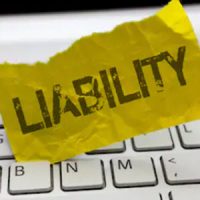AirBNB & Premises Liability In Florida

Airbnb is a company that provides short-term rentals to city visitors, mostly tourists. Since 2008, the business has mushroomed in size, and Florida has reaped many of the rewards, as the state played host to three of the most popular U.S. destinations in 2020. However, the company is not without its issues and controversies. One of the most persistent issues that has cropped up, at least in Florida, is that of premises liability. If a guest at an Airbnb is injured, the question of who is liable may become complicated, because of the relationship between the host and the rental guest. A Florida premises liability attorney may be able to clarify.
Which Visitor Category Are Airbnb Guests?
The law of premises liability holds a property owner or business owner liable for the injuries of a guest if certain criteria are met. In Florida, a visitor may be grouped into one of three categories under premises liability law. They are:
- (1) invitees, which may be categorized further into business and public invitees. An invitee is a person who has visited the premises on some business of the owner’s – for example, as a customer in a business – and for whom a property owner must keep their premises “reasonably safe,” as well as protecting the visitor from dangers that they are aware of (or should have known of);
- (2) licensees, who are present on the premises for business of their own – a common example is a door-to-door salesman. Licensees must not be intentionally exposed to danger, or “wantonly or willfully injured;” and
- (3) trespassers, who are, as one might think, unlawfully present on the premises. The only duty owed to a trespasser is for the premises owner to refrain from intentionally injuring them.
Normally, visitors to a private home will almost always fall under the category of licensee, but since Airbnb rentals involve a business transaction, guests will usually be classified as business invitees. In theory, this means that the premises owner or Airbnb would be liable for any injuries or damage that affects a guest – but in reality, few file complaints.
Is Filing Suit Worth It?
There are several reasons why injured Airbnb guests do not often file suit against either the owner of the rental unit or the company. One of them is simply that many do not consider making such a claim worth it – either the owner is judgment proof (has little to no assets that could be leveraged to make up a jury award), or their dispute is with Airbnb, which has other avenues by which one can pursue complaints and generally will not accept liability for injuries or accidents.
Historically, in cases where guests were injured at registered Airbnbs, the company simply refused to accept liability. However, over time, this began to negatively affect business, so instead, Airbnb unveiled an insurance program of sorts, called Host Protection Insurance (HPI), in 2015. Instead of allowing injured guests to file suit against them or the owners, HPI will cover any legal obligations owed by hosts in certain countries. There are quite a few exceptions, including auto or mobile equipment, or the transmission of a communicable disease.
Contact A Tampa Premises Liability Attorney
There are positives and negatives to renting or renting out space with Airbnb, but if you have been injured while renting a unit, you do have options for receiving money damages for what you have been through. These cases can be complex, so calling a Tampa premises liability attorney from the Rinaldo Law Group may be a good idea. Call us today at (813) 831-9999 for a free consultation.
Source:
casetext.com/case/post-v-lunney-1












